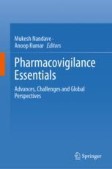Search
Search Results
-
Review Paper: Reporting Practices for Task fMRI Studies
What are the standards for the reporting methods and results of fMRI studies, and how have they evolved over the years? To answer this question we...

-
Best practices for the interpretation and reporting of clinical whole genome sequencing
Whole genome sequencing (WGS) shows promise as a first-tier diagnostic test for patients with rare genetic disorders. However, standards addressing...

-
Consumers’ knowledge and experiences of adverse drug reaction reporting in Australia: a national survey
AbstractThis study aimed to investigate the current knowledge and experiences of consumers in Australia on adverse drug reaction (ADR) reporting and...

-
Improving the Eligibility of Task-Based fMRI Studies for Meta-Analysis: A Review and Reporting Recommendations
Decisions made during the analysis or reporting of an fMRI study influence the eligibility of that study to be entered into a meta-analysis. In a...

-
Reporting of ADRs Across the Globe: India, USA, EU, and Non-EU
This chapter conducts a comparative analysis of adverse drug reaction (ADR) reporting practices in four prominent global regions: India, the United...
-
Imprecision in vaccine adverse event reporting and a methodological analysis of reporting systems to improve pharmacovigilance and public health
IntroductionThis study documents imprecision in Japanese reports of adverse events following immunization (AEFI). In doing so, it presents methods to...
-
A framework for the evaluation and reporting of incidental findings in clinical genomic testing
Currently, there are no widely accepted recommendations in the genomics field guiding the return of incidental findings (IFs), defined here as...

-
A focused review of statistical practices for relating radiation dose-volume exposure and toxicity
PurposeRelating dose-volume histogram (DVH) information to patient outcomes is critical for outcomes research in radiation oncology, but this is...

-
Neutralizing Antibody Validation Testing and Reporting Harmonization
Evolving immunogenicity assay performance expectations and a lack of harmonized neutralizing antibody validation testing and reporting tools have...

-
Protocols, policies and practices for antimicrobial stewardship in hospitalized patients in least-developed and low-income countries: a systematic review
BackgroundWe aimed to identify interventions used to implement antimicrobial stewardship practices among hospitalized patients in least-developed...

-
Recommendations for reporting tissue and circulating tumour (ct)DNA next-generation sequencing results in non-small cell lung cancer
Non-small cell lung cancer is a heterogeneous disease and molecular characterisation plays an important role in its clinical management....

-
Consensus Head Acceleration Measurement Practices (CHAMP): Origins, Methods, Transparency and Disclosure
The use of head kinematic measurement devices has recently proliferated owing to technology advances that make such measurement more feasible. In...
-
Laboratory and clinical practices in antinuclear antibody detection and related antigens: recommendations from a Spanish multicentre survey
Antinuclear antibodies (ANA) are the most widely used immunological test for the diagnosis of autoimmune diseases. Despite the recommendations of...

-
Alzheimer blood biomarkers: practical guidelines for study design, sample collection, processing, biobanking, measurement and result reporting
Alzheimer’s disease (AD), the most common form of dementia, remains challenging to understand and treat despite decades of research and clinical...

-
Knowledge of Human Papillomavirus (HPV), Attitudes, and Practices Towards Anti-HPV Vaccination Among Israeli Nurses
Human papillomavirus (HPV) is a small, non-enveloped, double-stranded DNA virus, belonging to the family of Papillomaviridae . It is a highly common...
-
Analysis of laboratory reporting practices using a quality assessment of a virtual patient
PurposeExisting research suggests that while some laboratories report variants of uncertain significance, unsolicited findings (UF), and/or secondary...
-
Challenges and best practices in omics benchmarking
Technological advances enabling massively parallel measurement of biological features — such as microarrays, high-throughput sequencing and mass...

-
Pharmacovigilance study of BCR-ABL1 tyrosine kinase inhibitors: a safety analysis of the FDA adverse event reporting system
BackgroundWith the increased use of BCR-ABL1 tyrosine kinase inhibitors (TKIs) in cancer patients, adverse events (AEs) have garnered considerable...

-
Tri©DB: an integrated platform of knowledgebase and reporting system for cancer precision medicine
BackgroundWith the development of cancer precision medicine, a huge amount of high-dimensional cancer information has rapidly accumulated regarding...

-
Knowledge, attitudes and practices towards community-acquired pneumonia and COVID-19 among general population: a cross-sectional study
BackgroundThis study aimed to assess the knowledge, attitudes, and practices (KAP) of the general population to community-acquired pneumonia (CAP)...

